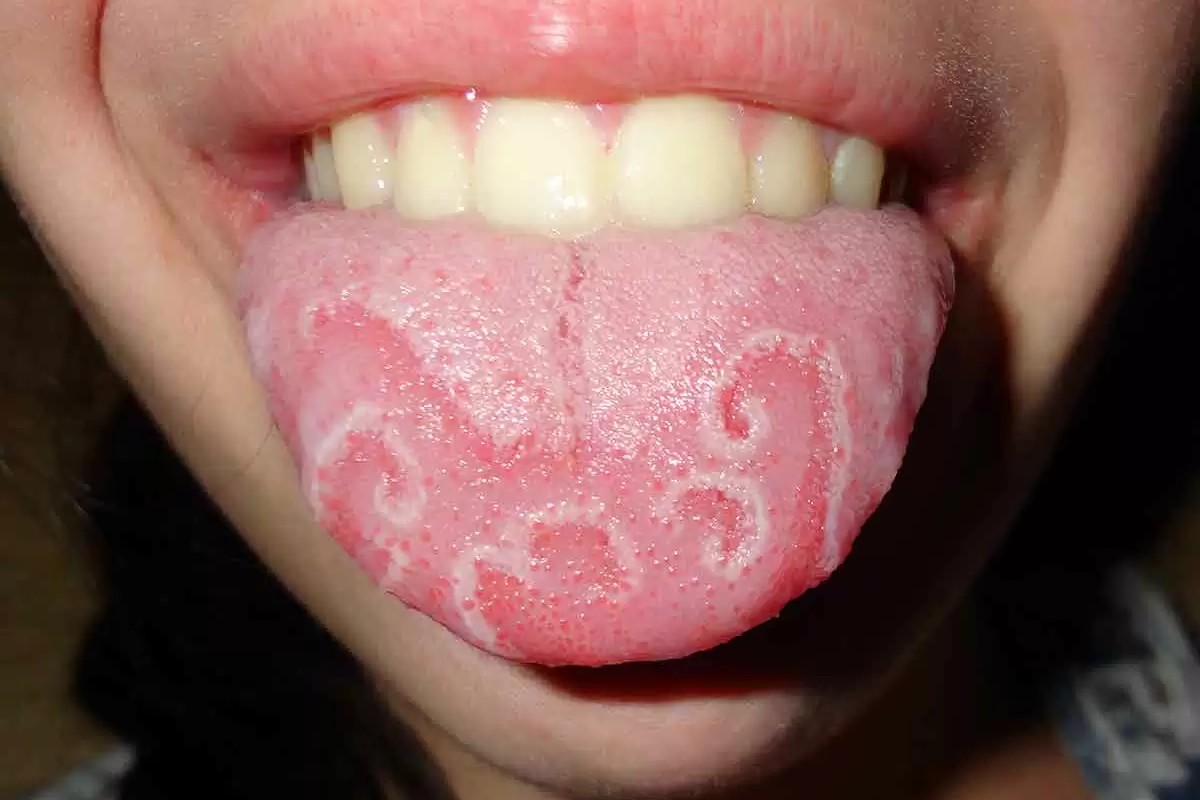
What is Glossitis? Glossitis is an inflammation of the tongue that can cause swelling, color changes, and a smooth appearance. This condition can make the tongue sore and sensitive, affecting speech and eating. What causes Glossitis? Several factors can lead to glossitis, including infections, allergies, injuries, and nutritional deficiencies. How is Glossitis treated? Treatment depends on the underlying cause but often includes medications, dietary changes, and good oral hygiene. Is Glossitis serious? While usually not life-threatening, glossitis can indicate other health issues that need attention. Can Glossitis be prevented? Yes, maintaining good oral hygiene, a balanced diet, and avoiding irritants can help prevent it.
What is Glossitis?
Glossitis is an inflammation of the tongue that can cause swelling, color changes, and a smooth appearance. It can be painful and affect how you eat or speak. Here are some interesting facts about this condition.
-
Glossitis can be caused by infections, allergies, or irritants like spicy foods or alcohol.
-
Nutritional deficiencies, especially in iron, folic acid, and vitamin B12, can lead to glossitis.
-
Poor oral hygiene is a common cause of glossitis. Regular brushing and flossing can help prevent it.
-
Certain medications, such as antibiotics or diuretics, can trigger glossitis.
-
Glossitis can be a symptom of systemic diseases like celiac disease or diabetes.
Symptoms of Glossitis
Recognizing the symptoms of glossitis can help in seeking timely treatment. Here are some signs to look out for.
-
A swollen tongue is a primary symptom of glossitis.
-
The tongue may appear smooth and glossy due to the loss of papillae.
-
Pain or tenderness in the tongue is common with glossitis.
-
Changes in tongue color, such as redness or paleness, can indicate glossitis.
-
Difficulty chewing, swallowing, or speaking may occur due to tongue inflammation.
Types of Glossitis
Glossitis can be classified into different types based on its cause and appearance. Understanding these types can aid in diagnosis and treatment.
-
Acute glossitis develops suddenly and is often due to an allergic reaction or infection.
-
Chronic glossitis persists over a long period and may be linked to underlying health issues.
-
Atrophic glossitis, also known as Hunter's glossitis, is characterized by a smooth, glossy tongue surface.
-
Geographic tongue, a form of glossitis, features map-like red patches on the tongue.
-
Median rhomboid glossitis presents as a diamond-shaped, smooth red area in the middle of the tongue.
Diagnosis and Treatment
Proper diagnosis and treatment are crucial for managing glossitis effectively. Here are some key points about how it is diagnosed and treated.
-
A physical examination of the tongue is usually the first step in diagnosing glossitis.
-
Blood tests may be conducted to check for nutritional deficiencies or infections.
-
Allergy tests can help identify potential allergens causing glossitis.
-
Treating the underlying cause, such as a nutritional deficiency or infection, is essential for resolving glossitis.
-
Topical treatments, like corticosteroids or antiseptic mouthwashes, can reduce inflammation and pain.
Prevention and Management
Preventing glossitis involves maintaining good oral hygiene and addressing potential risk factors. Here are some tips for prevention and management.
-
Regular dental check-ups can help detect and prevent glossitis.
-
Eating a balanced diet rich in vitamins and minerals can prevent nutritional deficiencies that cause glossitis.
-
Avoiding irritants like spicy foods, alcohol, and tobacco can reduce the risk of glossitis.
-
Managing chronic health conditions, such as diabetes or celiac disease, can help prevent glossitis.
-
Using a soft-bristled toothbrush and gentle brushing techniques can prevent tongue irritation.
Interesting Facts About Glossitis
Here are some additional intriguing facts about glossitis that you might find surprising.
- Glossitis can sometimes be a sign of more serious conditions, such as HIV or syphilis, highlighting the importance of medical evaluation.
Final Thoughts on Glossitis
Glossitis, though often overlooked, can tell us a lot about our overall health. This condition, marked by inflammation of the tongue, can stem from various causes like infections, allergies, or nutritional deficiencies. Recognizing the symptoms early, such as swelling, color changes, or pain, can lead to quicker treatment and relief. Simple lifestyle changes, like maintaining good oral hygiene and eating a balanced diet, can prevent many cases. If you notice persistent symptoms, consulting a healthcare professional is crucial. They can provide tailored advice and treatment options. Remember, your tongue's health is a window into your body's well-being. Stay informed, take proactive steps, and don't ignore what your tongue might be trying to tell you.
Was this page helpful?
Our commitment to delivering trustworthy and engaging content is at the heart of what we do. Each fact on our site is contributed by real users like you, bringing a wealth of diverse insights and information. To ensure the highest standards of accuracy and reliability, our dedicated editors meticulously review each submission. This process guarantees that the facts we share are not only fascinating but also credible. Trust in our commitment to quality and authenticity as you explore and learn with us.
